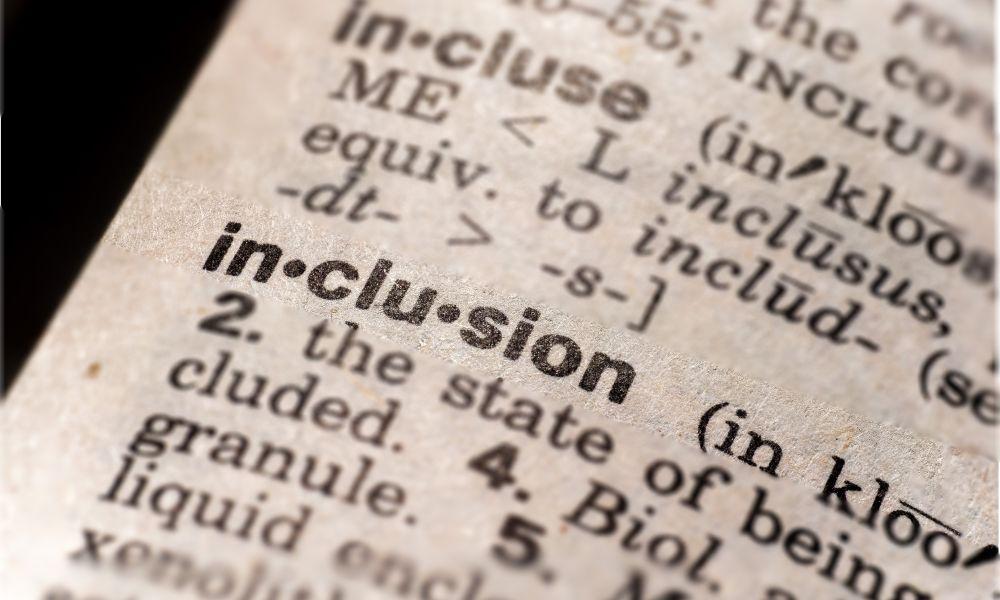Inclusive education is a topic Teacher readers – both experienced educators and those starting their careers – are often seeking more information and support on.
A research paper from academics at Monash University has recently been made open-access in the Australian Journal of Education. The paper, Beginning teacher preparation and readiness for the profession as inclusive educators, shares findings of a small-scale study with 8 educators in their first year of teaching. These findings can help schools with their own induction planning and ongoing professional development.
‘The intention of the research was to … enhance beginning teachers’ readiness for the profession as inclusive educators, working with students with disability,’ lead author, Rebecca Rosenberg, tells Teacher. ‘We wanted to unearth how well they had felt prepared for the profession, as inclusive educators, working with students with disability.’
The research team – Rosenberg and her colleagues Dr Kate de Bruin and Dr Michelle Ludecke – were seeking answers to 2 research questions through this study:
- What are the perceptions of beginning teachers in regard to how their Initial Teacher Education (ITE) enabled them to address the Australian Professional Standards for Teachers (APST) and facilitate their development as an inclusive educator?
- What barriers did the beginning teachers’ encounter and/or overcome in the transition to teaching that they feel their ITE could have better prepared them for?
How prepared do beginning teachers feel?
In the paper, the authors share that their research was informed by: ‘the 3 apprenticeships model encompassing the cognitive, practical and moral dimensions of teaching that is the knowledge, skills and beliefs required to practice as an inclusive educator’.
The study involved collecting data from interviews with 8 beginning teachers who entered the profession in 2020 and 2021. A thematic analysis of the interviews was conducted and, from this, 3 key areas of which these teachers perceived their university education did not sufficiently prepare them for, emerged. They were:
- Strong professional inclusive education terminology and knowledge
- Practical and evidence-based skills for instruction and assessment
- The opportunity to work with people with disabilities in inclusive contexts in order to become effective inclusive educators across all 3 domains.
Inclusive education terminology and knowledge
On their first finding, Rosenberg tells Teacher: ‘Understanding professional inclusive education terminology is paramount to practicing as an inclusive educator working with students with disability. When inclusive education terminology is confused it can have a detrimental, long-term impact on a student’s educational experience.’
An example of this confusion is shared in the paper. It was found that 2 participants were confused about the distinction between the terms differentiated instruction and modification. Participants also indicated that their ITE courses did not teach them about the distinction between these 2 terms, or the appropriateness of using them with students.
‘It is vital that differentiated instruction be implemented, with data gathered over a considerable period of time, within the classroom context, before a modified curriculum even be considered for a student with disability,’ Rosenberg explains to Teacher. ‘The findings in this small-scale study however indicated that the terminology was understood as meaning the same thing, that there was not a distinct difference.
‘This was of concern, particularly when considering the consequences this confusion can have not only on beginning teacher practice but on student learning experiences and therefore student outcomes.’
What role can school leaders play supporting beginning teachers?
Rosenberg tells Teacher that the study findings regarding strong professional inclusive education terminology is important for school leaders to consider for beginning teachers entering the profession.
‘As are all the findings in the article. It would certainly be of benefit for inclusive education terminology to be focused on for beginning teachers during induction (and beyond).
‘Coupled with this, however, is being provided with the guidance and practical skills to teach students with disability in the classroom context in an inclusive manner. This not only benefits the beginning teacher practicing as an inclusive educator, but all the students in the class and not just some.’
To read more about the findings from this research, you can access the full open-access article published in the Australian Journal of Education, here.
References
Rosenberg, R., de Bruin, K., & Ludecke, M. (2024). Beginning teacher preparation and readiness for the profession as inclusive educators. Australian Journal of Education, 68(1), 23-35. https://doi.org/10.1177/00049441231218724
As a school leader, reflect on the current induction process in place for beginning teachers at your school. Is it explicitly supporting teachers to be inclusive educators?
Thinking about your own teaching, how confident are you with inclusive education terminology? What help from colleagues or professional development would you like in this area?



